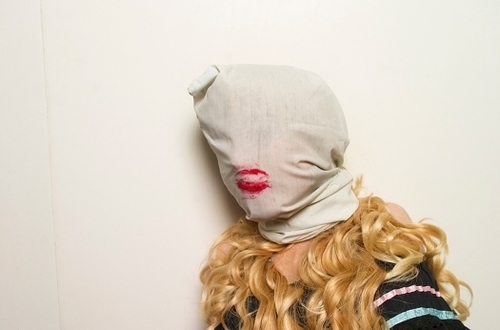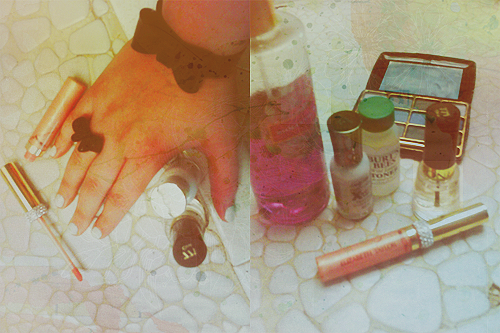Magen Cubed's Blog, page 51
December 21, 2010
Another home away from home

As I'm sure I've made you well-aware, I have a fondness for all things wet, soft and be-tenctacled. Octopuses and squids, cuttlefish and nautiluses, and various other ancient things that come from the deep sea. This is why I'm so pleased to announce that I've recently joined up with the staff at Cephalopod Tea Party as a volunteer blogger. It's a little online depot for all things cephalopod: From scientific news to jewelry, art to housewares, toys, collectibles and more.
So if you enjoy eight-armed house guests as much as I do, or you're just looking for a sizeable dump for some kitchy and cephalopod-oriented window-shopping, please stop by and have a look around.

December 17, 2010
Why I Write, Redux

It's the most popular question you're likely to hear if you've ever put pen to paper: Why do you write? I happen to get a certain variation of it: Why do you write horror? No matter how you look at it, a question's a question. Each is just as overplayed and, depending on the context, patronizing. You don't ask a welder why he welds, or why a baker bakes. Those are jobs you just accept on face value, because it's just that: A job.
Writing is a job, even though you might know this depending on who you ask. The details get lost in words like muse, art form, pure creativity. It seems magical to the reader, some ethereal craft that allows writers to create people and places out of thin air. But, like magic, it's a sleight of hand in its own way. You're selling a story to somebody, and hoping that they believe it long enough to buy it. There's nothing wrong with that. After all, writing is a profession, and all professionals, even in the creative fields such as art, music and writing, want to earn a living from their work.
But I digress. I write because it's what I want to do for a living, or at least, as a way to supplement my income. Professors and editors, artists and readers have all told me I have a knack for it. I would write even if I wasn't trying to sell stories; I've written hundreds of stories as a hobby long before I talked myself into trying to get published. It's just what I enjoy doing, the same way some people paint or bake or fix-up old cars on the weekends. However, I write horror for a very different reason.
Depending on who you ask, I may not even write horror. Maybe that's true, too. The definition is always moving on me. Even for it, I love horror for what it is, taken down to its constituent parts. Strip away the cheesy fun of masked killers, the schlock-and-awe of zombie cheerleaders, vampires, monsters, the occasional giant radioactive cockroach, and even the existential terror of the human condition, and horror is simple and exciting to me. Horror is a vehicle for examining the world around us: It's how we deal with the things that we don't understand. About nature, God, the Devil, science, the future, and ourselves. It's the understanding of what is frightening to us, and the use of that understanding to tell a story.
Horror isn't easy to write. That's why it comes in so many forms, and used to tell so many kinds of stories. Apocalyptic, bizarro, creature horror, paranormal, psychological, supernatural, ranging from hardcore gore to cheeky fun. Horror is rooted in the fear of things we don't know as well as the things we do, the things that hurt us, that hunt us, from collective experience. That's why fear is a personal thing. What a reader or viewer takes from this fear is exclusive to his or her experiences. As a writer, trying to capture this, sort it out, and use it in the future is a challenge. It helps me tease out my own fears and exploit them for something productive, rather than just collecting dust in the back of my mind.
I don't often do gore. I don't often follow familiar tropes. While certainly enjoyable, they're not usually my cup of tea from a writing standpoint. I prefer to explore the things that frighten me in my own life, as well as the things that interest me, because these topics tend to coincide. In some ways I truly enjoy the things that frighten me, because I'm learning something new about the things that exist in the dark, and the things lurking in the peripheral. Writing is how I investigate these things.
So while my writing doesn't always jive with the genre's standards and practices, it's the challenge of horror that brings me back. It's my desire to understand why the world is so scary. After all, if we're not trying to scare people, in some way or another, what is horror really for?
Written as a response to Why Write? from Wealie's World.

December 13, 2010
You are never alone
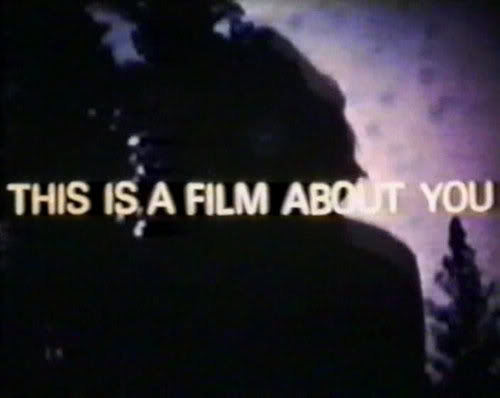
I was up late last night, a little later than my usual bedtime, over some egg nog and a good conversation about television writing. The short of it is I was a little upset about the season finale of Showtime's Dexter. I've been following the show religiously these last few years, despite the bumps and bruises, and the death of Rita at the end of the Trinity Killer arc last season. She was one of my most beloved characters from the series, and no matter how poignant, well-written and ultimately necessary her death was to Dexter's growth as a character, it left me a little raw. As a viewer or reader, as long as it's good for the story, I'll go along with any twist or turn, sacrifice or loss. I won't even complain, most of the time, as long as it's done well.
But as a writer, sometimes it's harder to draw the line.
I won't bore you with the details of this late-night discussion, but I was feeling a little wistful. "I know you have to let characters go," I said. "A story is finite. A life can last forever for a reader or a fan, but we're not talking about lives here, we're talking about a character in a story."
"Yes, but you're not talking about characters," my companion said, his cheek still a bit red with drink. "You're talking about people. You take the time and effort to create whole, well-rounded people. You can let go of a character, because a character has a limited existence in relationship to the story it comes from. People always live on. You can't really let go of a person."
That's always been my problem, in a lot of ways. I become so attached to characters — not just as a reader or viewer, but also, and more profoundly so, as a writer. It's easier to distance myself from a character that I love in a book or a show, because, as much as I may love him or her, they are finite. Writing a character is different: waking up with them in mind, working out the minutiae of their lives in family albums, CD collections and favorite shirts with holes in the sleeves. When I'm writing them it's perfect, living in their moments and hollowed out spaces, breathing the air that they breathe. When the story's done and edited and tucked away in dresser drawers, I can't help but find myself at a bit of a loss.
Logic tells me that once a character's story is over, it's time to let it go. My instincts and education tell me to sever the chord and let my work exist in the world free of me. Sometimes, however, I can't make myself do it.
The closer I get to the end of my first novel, the more at a loss I feel. I'm like a viewer, saying goodbye to her favorite character after a seven-season television run; or a reader, putting away the protagonist at the end of a cherished novel. I don't know if I can say goodbye to these people I've spent the last year learning to write. Their story may be coming to an end but their lives are not. I feel there are still roads for them to travel, things that must be done before I put them to bed. I can't bury them just yet.
I don't know what this means or where it will take me, I only know that I am open to notion.
So am I the only one who keeps her characters close? Do I mourn their passing in time alone, or does anybody else out there feel that same loss? Do you distract yourself with other characters, or do you keep writing your favorites after their stories are over? Is there a way to balance the two? I guess I'll have to find these answers for myself.

December 11, 2010
From FEARnet to your heart
Drew Daywalt of FEARnet is doing something very interesting for indie and amateur horror filmmakers this holiday season, in a project that strikes a chord with me.
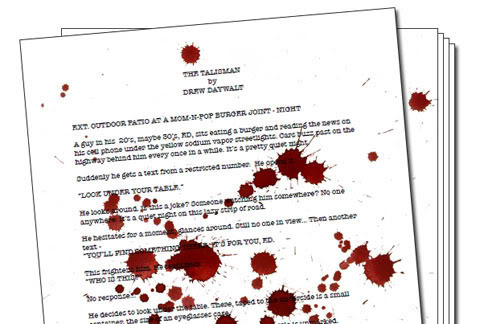
Here's a 5 page horror short which I wrote expressly for you guys to direct! It's called The Talisman and I encourage you guys to go make this film in any way you see fit. Wanna animate it? Go ahead. Claymation? Fine. Live action with major creature effects? Go for it. Live action with no creature effects and just the "idea" of spfx. That's cool too. Just wanna film it all at your kitchen table? Not a problem. It's all about story…
All the relevant information about the project is on FEARnet for anybody interested in participating. Because if I had good equipment and some SPFX money, I would be doing this too. It's always been my not-so-secret dream to stumble into film like some of my heroes before me. Of course I want to make literary-based horror films with a feminist bent, but that's another story for another day.
Overall this a great idea, a great project, and a wonderful way for some people in the genre to stretch their legs and get a little attention in the process. It's just a good thing no matter how you slice it.

December 5, 2010
Here I am, a rabbit-hearted girl
I must become a lion-hearted girl
Ready for a fight
Before I make the final sacrifice
I have a secret: I have trouble writing women. What a terrible feminist that must make me.
I don't put a lot of stock in the notion of "putting myself" in every character. I use my characters as tools to investigate and express my understanding of the world, separate from one another and devised for wholly different ends. They're like dolls that have overtaken the dollhouse when I'm sleeping, taking on lives of their own whenever I have my back turned. The idea of threading myself into each one of them is tiring, because I want them to exist in the world beyond me, free of me, my biases, misconceptions or jaded assumptions.
And that's where I run into trouble.
I can write a male character all day long. Portuguese playboy photographers, Ukrainian-manufactured androids, Japanese ex-cons, gangsters, painters, writers, cubicle-slaves, devout Christians praying for salvation in Dust Bowl-era Kansas. Gay, straight, bisexual, scarred by battle, lost at sea, looking for home by starlight and compass. All my favorite characters are men: the melancholy Noam Patel, the ethereal Elliot Townshend, Joel Britton in his tired white armor and my personal pet-project Casey Way, the boy with a hole in his heart. When I write men, I feel free to explore their inner machinery, pick at the cogs and wheels until I find exactly what makes them tick. I have no fear, and I pull no punches.
Women make me struggle. Work harder, think harder, pace around them with hands in coat pockets, trying to parse out exactly who they are and what they're saying. Years of exposure to disappointing female characters in film, television, comic books and literature have put me on edge. Don't be too strong. Don't be too weak. Don't be too masculine. Don't be too feminine. Don't be too sexual. Don't be too asexual. Don't don't don't don't don't. The pros become outweighed by the cons. Sometimes it's hard to tell where I stand with my characters, and vice versa. It's a pressure I put on myself, I know, but it's one that I take very seriously. After all, I want so badly for these women to exist on their own merit, more than plot devices or window-dressing, prop pieces or casual love interests.
Lily Mackey made me examine how an otherwise heterosexual woman would deal with detachment from society paired with her budding sexual interest in another woman. Alice Neilson made me try to understand the reasons women kill their spouses, outside of the cliches of battered wife syndrome or monetary or social gain. Mina Jones made me look at my own views of prostitution and sex-work, and the different ways that men and women use sex as a form of currency. Molly and Rachel made me think about my own functional understanding of the visible world, and how the average person would try to survive if his or her tethers to that understanding were cut. All of these roads were long, all these battles hard-fought.
My current battle is with a character named Mariska Kovol, from my novel, Flesh Trap. Casey's step-sister, joined to his hip by the trauma of their childhood and the sins that they both still labor under, placed on their shoulders by Casey's rapist father and Mariska's weak, abiding mother. Mariska is like a puzzle, the answers of which I still haven't quite put together yet, teasing me every day.
Mariska is a rape survivor, abused by Casey's father; her youthful transgressions with drugs and self-destruction have forged an inner strength, a cooled resolve in her acceptance of the past. She's a tom-boy, six-foot-three in her favorite pair of cowboy boots and always ready for a scrap, who likes to get high and drink beer with the boys. She's a sister, who feels compelled to take care of her baby brother, a fellow veteran in the war made of their childhood, even though she can't always see when her devotion becomes interference. She's a daughter, trapped under the weight of her mother Alyona, who destroyed their charade of a family in an act that Mariska is left to try to atone for. She's a blind-spot, for whom Casey will run into battle, regardless of the consequences; knowing that Casey will be there to catch her when she falls sometimes keeps her from standing on her own two feet, something she wants to correct but isn't always able to when she has the whole of Casey's attention.
Mariska's a bundle of contradictions, strengths and weaknesses. She's held up by the sheer force of her will, and yet still remains too soft to see when that she is Casey's Achilles Heel and vice versa. I'm still learning to write her, fretting over every page, wringing my hands over the context of her words and the subtext of her intentions. Does she mean well? Does she do harm? Is she strong enough to survive this violent chain of events at which Casey is the heart? Is she willful enough to do what must be done, regardless of the cost to herself?
I'm still trying to figure that out for myself, along with every other woman I write. How about you? Am I the only one who fights to create these women, or does it come naturally to others? Do you hide from your male characters instead, or do they hide from you, perhaps?

December 1, 2010
News news news

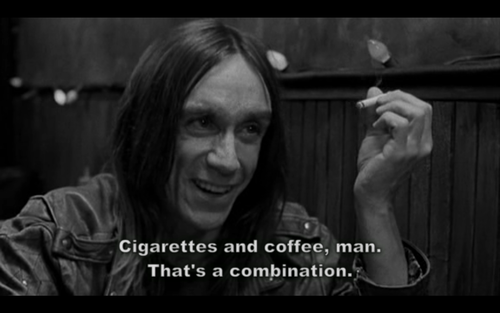
Two things of import today.
Firstly, Erin Cole's Holiday Book Blog Catalog is out today, featuring thirty indie horror writers and books to look into for your holiday purchasing needs. Two anthologies I was involved in this year, THE NEW FLESH: YEAR ZERO and M IS FOR MONSTER, are also on this list. A lot of good people I know are on this thing, you should check it out and start dog-earring for some good reads.
Secondly, The Battered Suitcase Winter 2010 issue came out today, featuring my THE DIVING BELL-related short-short The Pea-Coat. It's a tiny story about friends-turned-something-more and the things we don't dare talk about. And it's not even about dead people. Imagine that.
I think this is a suitable way to begin my December. Wouldn't you agree?
November 29, 2010
Review: M is for Monster, T is for Trap

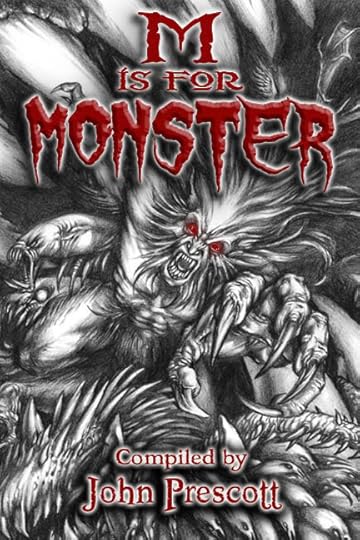
I have just received my first proper review. Needless to say, I'm pretty pleased with the reception.
First published on Halloween of 2010, John Prescott's monster-horror anthology 'M is for Monster' delivers twenty-six varied tales from a veritable spectrum of up-and-coming authors from across the continents. Sporting impressive attention grabbing cover artwork by Ron Spencer, this lovingly presented book delivers a whole host of horror tales, each one representing a different letter of the alphabet. Indeed, each tale is merely titled with the letter it represents. But for review purposes, the 'monster' that each letter represents is given below…
T is for Trap – Magen Toole – 10 Pages
Carroll Robinson has a steady job at Sherman Brothers Bank. He has a loving wife, two sons at university following in his banking footsteps, and lives in a respectable neighbourhood. There is nothing out of the ordinary in Robinson's life. That is, other than his growing obsession with a girl that each night is standing alone outside the abandoned and derelict property of 6621 Mooreland Street. He knows the girl's face well. A face from his past. A face that brings back haunting and unforgettable memories…
Well written and intriguing from the very outset, Toole's eerie tale of obsession and entrapment creeps along with a completely ensnaring mystery that keeps the eager suspense burning throughout the tale. The secret obsession of our principal character is finely developed to bring out an uncontrollable urgency to the cascading storyline. The finale is powerful and sinister, with a handful of purposeful questions left hauntingly unanswered. Gloriously dark and twisted and brimming with imagination.
–Chris Hall
The full, comprehensive review will be on Amazon.com soon. Take a moment to look it over. If you've been at all hesitant about reading this book, this review will change your mind.
November 28, 2010
Seventeen steps

Lip gloss and nail polish, highlights and high heels. Sometimes it feels like a uniform to be put on every morning, or armor for battle, only to be taken off after the day's been won. Eventually you have to make peace with that, and choose to use to your advantage or let it white-wash you. It's part of growing up, I guess, when we decide to stop dressing up to meet expectations, and begin making expectations for ourselves. When we begin feeling comfortable enough in our own skin to choose our own clothes, our own armor and uniforms, rather than just paint ourselves to blend into the crowd.
It's not something I put a lot of thought into most of the time, but, hey. I have a lot of time on my hands these days.
The topics of projections and self-improvements have become a point of interest as of late, as I fill up my days between manuscript edits and resume rewrites. I find myself experimenting with makeup palettes and painting my nails. Going through my closet and throwing things in ever-growing the "give-away" pile. Trying on the stupid shoes I've acquired over the years and deciding once and for all that, yes, these heels will kill me if I keep wearing them (no matter how nice they make my calves look.). I'm reevaluating the person I put out in the world when I'm on the street. I feel like I could use some retooling. That's just what I do when I get bored.
So sue me.
I'm taking this time to clean up my habits, or at least give it my best effort. Find a maintainable vitamin regimen to cover all my dietary needs. Stop wearing stupid shoes that make my feet hurt. Drink more green tea and less soda (no matter how delicious and sugary soda is, because it certainly is that). Exercise a little bit every day. Find a quick makeup routine that still looks good, so I'm not standing in the bathroom for twenty minutes painting my face. Take care of my skin so I'm not feeling compelled to hide behind makeup. Paint my damn nails the way I like to (black, white, gray, just like my wardrobe). Take time to hula hoop. Do an herbal cleanse once in a while and watch my acid reflux, so I don't let myself feel sick all the time.
I resolve not to do anything dumb, and tether my efforts to New Year's Resolutions and self-improvement schemes. I'm not doing this because I want to fit into a Size 2 or to buy a pair of skinny jeans. I just want to feel better, and more comfortable with me, whatever me is going to come out of this. After all, my life is in a transition period, whether I like it or not.
I might as well use that for all it's worth.
November 25, 2010
Thanksgiving

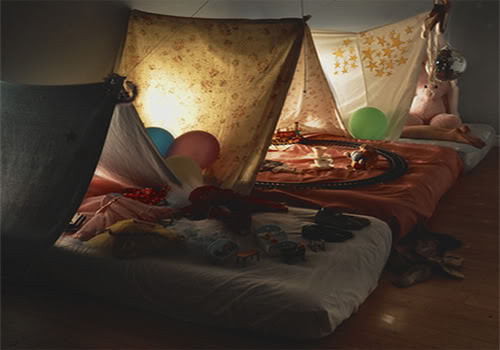
I'll be honest: Thanksgiving really isn't my kind of holiday. It's been a long time since the warm familial scenes at the dinner table and greeting card memories. As things stand right now, I'm holding my breath on phone calls and emails and correspondences. I'm waiting around, gathering up my options and looking hard at each of them, in hopes of divining something between the bundles of sticks and unhatched eggs. Even for everything that's happened, I know I do have a lot to be thankful for.
In the last year I've been on a roller-coaster. Get-togethers and break-aparts, friends made and unmade, feelings caught in butterfly nets and then lost again, swept up in the wind and out to sea. I've been knocked off my horse and into the dirt more times than I'd like to count. Each time I managed to get back up, even when I didn't think I could. I bandaged my bloodied knees and kept going, even when I thought for sure I'd fold up and fall apart.
This time, this time it will be the end of me. I just know it.
I wrote a lot of stories I was really proud of, and exceeded my publication goals for the year. I met some people that helped me do some things I didn't think were possible. I started my novel. I found myself in the middle of something really good with somebody really lovely. I have no idea what we're doing, or where we're going, or what's around the next corner. But I think I'm okay with that, because it's going to somewhere good. I just feel it. And I just have to learn to trust that and not be afraid.
This Thanksgiving I'm getting along by the skin of my teeth, caught between held breaths and crossed fingers. Phone calls and text messages keep me company while I sit on my hands and wait the worst of this out. But I'm still thankful for everything I have, and everything I don't, and everything else in between.
Are you?
November 22, 2010
The girl with one eye

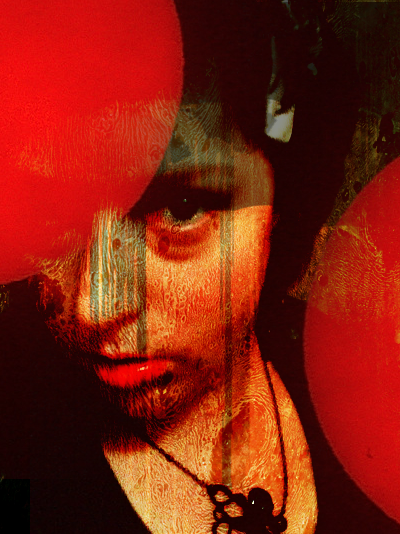
I seem to be between a lot of things at the moment.
I've found myself between jobs, quite unexpectedly and not of my choosing, looking for something new. The old job was a headache and a fat oily mess and I don't miss it, but I wasn't exactly prepared to be set outside with a non-committal mumble and some paper-shuffling from my employers. It's for the best. It didn't suit my needs and I really do need to find something better. At least that's what I tell myself every day that I go out looking for new employment.
Keep your digits crossed for me, if you can. I'd appreciate it a great deal.
Even for all of the mucking about in my personal life, I've tried to stay busy on the writing-front as of late. The novel is still on-going, being reworked in longhand while I sketch out new scenes for the back end and consider some of my imagery. I'm closing in quickly, even for all my pocket-stuffing and wibbling-wobbling over metaphors. On the same hand I've been working through several short stories, finishing two, polishing up a third, and working on a fourth. Just in case I didn't have enough to do already.
Out of those four stories, two are sitting out in editors' inboxes awaiting responses (one for major publication and another for an anthology). The third is being tidied up for submission to an anthology I was asked to contribute to. The fourth, if I get it done in time, is going to be sent off to a short story contest. I also have another chapbook to put together for download.
I do sleep sometimes. Honest. Some nights less than others.
So my life is a work-in-progress at the moment. Between resumes and applications, emails to editors and crossed-fingers for acceptances. All I can do is hope for the best.

